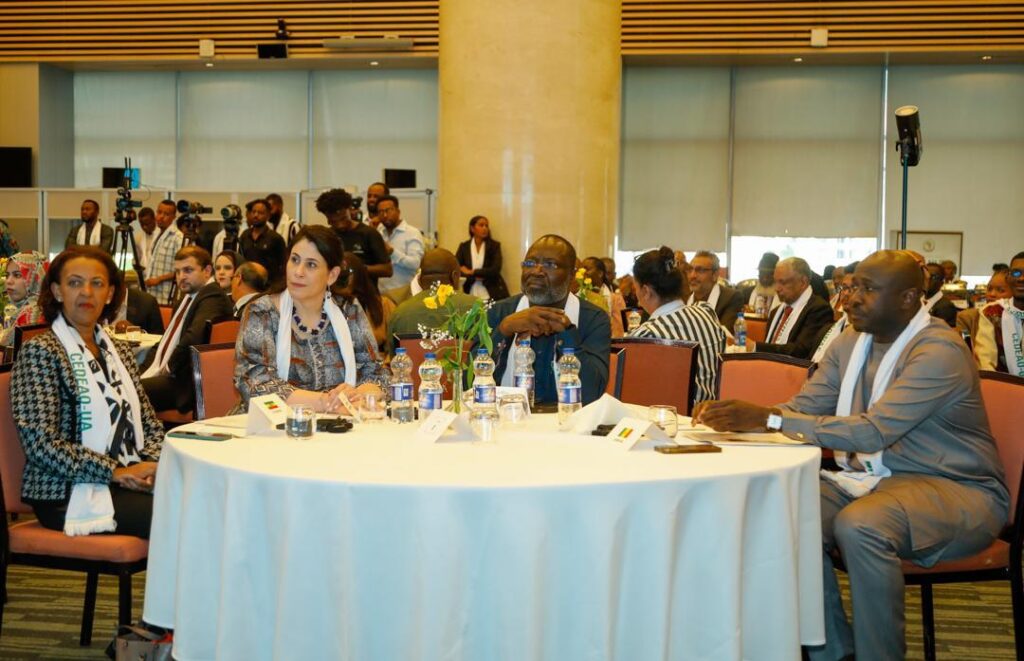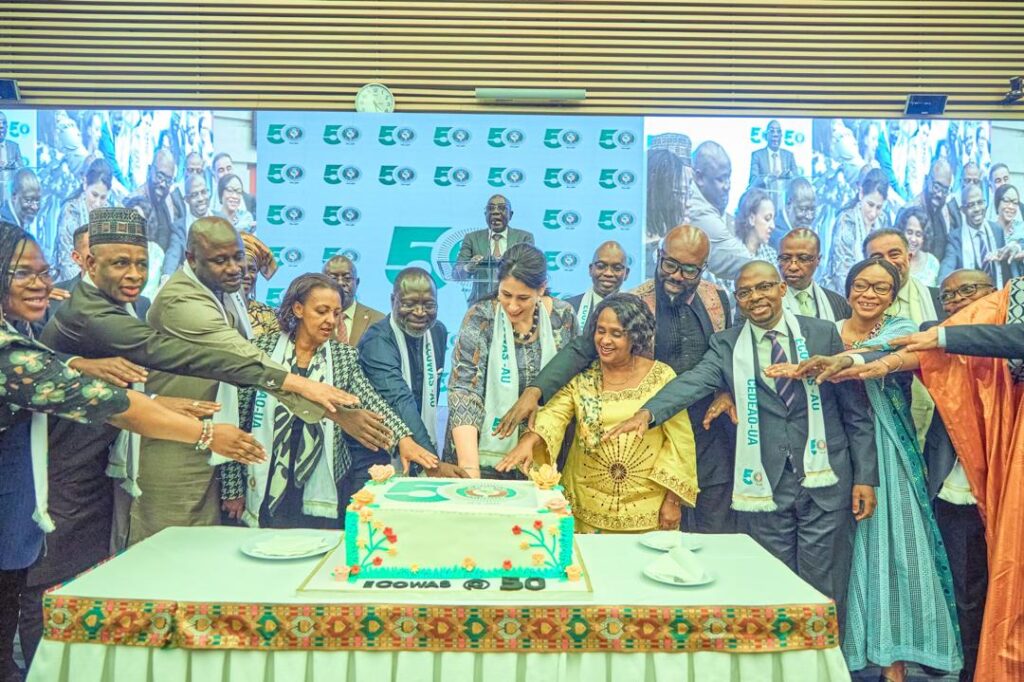AU Celebrates ECOWAS@50 in Grand Style, Unveils Restates Vision for West Africa’s Future.
By Raymond Enoch
The golden jubilee of the Economic Community of West African States (ECOWAS) was commemorated with a high-level diplomatic ceremony at the African Union Commission headquarters in Addis Ababa on June 12, 2025, bringing together African and international stakeholders to reflect on five decades of regional integration, and to chart a transformative path forward.

Organised by the Permanent Representation of ECOWAS to the African Union in collaboration with the ECOWAS Group of Ambassadors and Permanent Representatives in Addis Ababa, the event was a blend of celebration and critical introspection, marking 50 years of collective West African efforts towards peace, security, development, and unity.
In his keynote address, H.E. Dr Omar Alieu Touray, President of the ECOWAS Commission, highlighted the organisation’s achievements in mediating conflicts, facilitating free movement, and promoting trade and democratic governance across its 15 member states. “As we celebrate our legacy, we must also confront the future with courage, commitment, and clarity of purpose,” Dr Touray stated.
Echoing this sentiment, H.E. Selma M. Haddadi, Vice-President of the African Union Commission, commended ECOWAS for its leadership on the continent. She emphasized the importance of deeper regional cooperation and synergy with the AU to address evolving transnational challenges such as terrorism, climate change, and economic shocks.

Themed “ECOWAS at 50: Successes, Challenges and Prospects for Deepening Regional Integration in West Africa,” the commemoration featured a robust panel discussion that drew participation from policymakers, diplomats, development partners, and civil society. Panellists examined the organisation’s milestones—from spearheading peacekeeping missions in Liberia and Sierra Leone to establishing trade protocols that ease movement of goods and people across borders.
Delegates from African Union member states, non-African diplomatic missions, the United Nations Office to the African Union (UNOAU), the Institute for Security Studies (ISS), and other regional bodies participated actively in the discourse, signalling strong international interest in ECOWAS’s evolving role on the continent.
Despite current challenges—including political instability in some member states, economic disparities, and security threats—participants expressed optimism about ECOWAS’s potential to emerge as a cornerstone of African integration and resilience.
The fiftieth anniversary served not only as a celebration of history, but as a clarion call for renewed commitment to the ECOWAS vision of a peaceful, prosperous, and fully integrated West Africa. As the bloc looks to its next chapter, the message from Addis Ababa was clear: the future of regional integration lies in stronger partnerships, innovative policy responses, and a unified regional identity.









